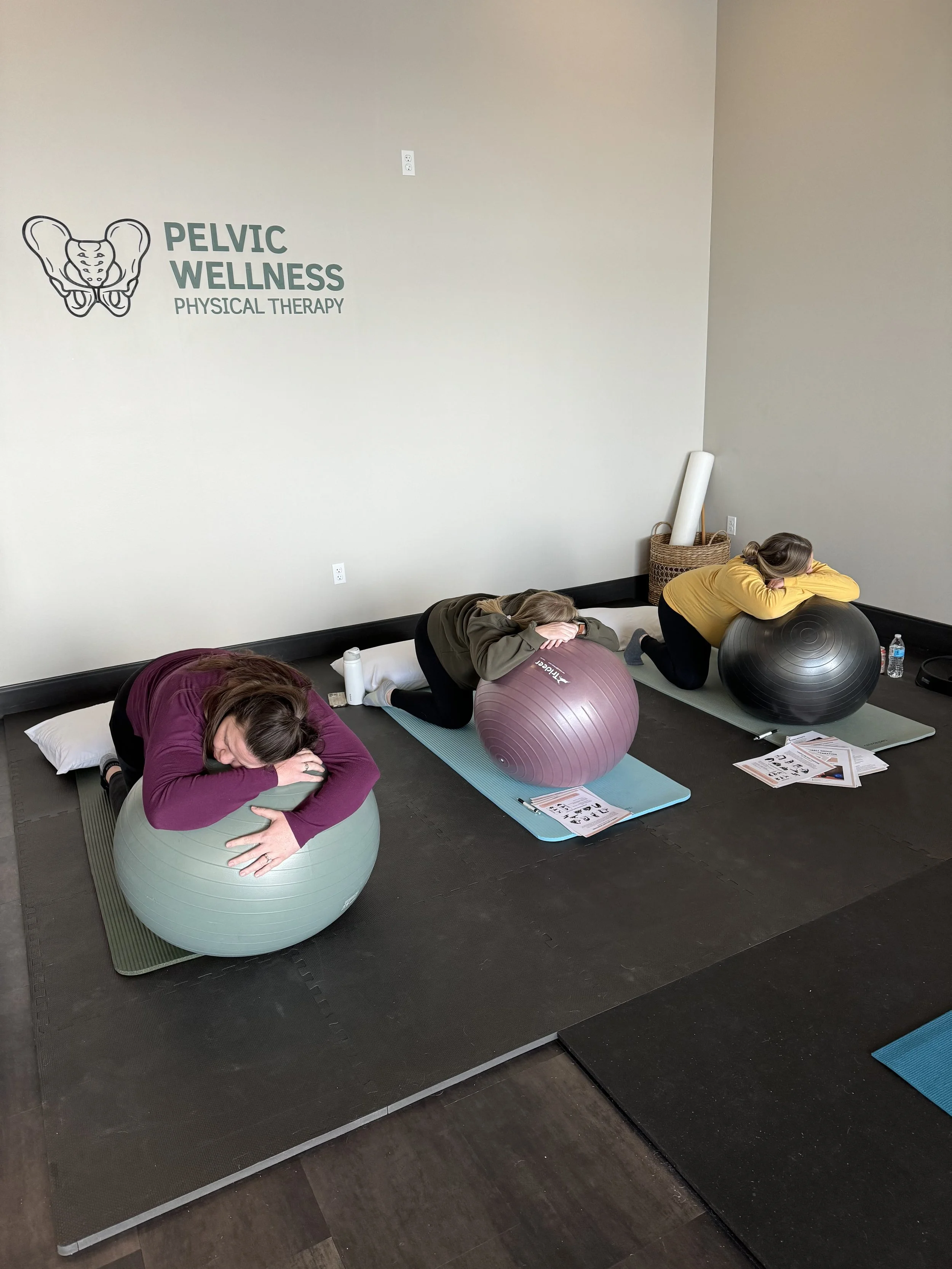
Birth Preparation
Labor and delivery are an extremely physical event of a women’s life. Preparing for labor and delivery can help a mother experience the birth she envisions, as well as prevent longterm pelvic floor-related conditions. We are experts for birth preparation in Omaha, NE. Let us help you achieve the birth you envision.
We provide our birth preparation services in two different formats.
3 x one-on-one sessions with a Doctor of Physical Therapy
This is a more intimate and individualized way to receive our Birth Preparation techniques. We can cater these sessions to your specific birth plan and wishes. We can also provide you with recommendations based on your unique body.
Small Group Birth Prep with a Doctor of Physical Therapy
This is a 2.5 hour, in-person course with a few other expectant mothers. We keep this course small so you can still receive some feedback on the techniques and confirm you are understanding and performing them correctly. We offer this course once per quarter.
What is included in Brith Preparation with a Doctor of Physical Therapy?
As Board-Certified Women’s Health Therapists, we are equipped with expert skills to help you achieve the birth you envision. Let’s help your body work with you and not against you.
1. EDUCATION: Gain knowledge on the musculoskeletal changes that occur during pregnancy including the impact on posture, pelvic floor, and core. This will include topics such as:
Diastasis recti abdominis (DRA) - including how to assess
Proper activation of the deep core muscles
Posture and physical changes to the body during pregnancy
2. PREPARATION: Explore techniques to prepare your body and mind for the great athletic event of delivery. Going into delivery in a prepared physical and mental state can highly impact your experience. We will cover multiple techniques to help assist with progression of labor and facilitate an optimal delivery including
Types of pushing and how to push properly + productively
Labor and delivery positions to promote a comfortable delivery
Techniques to improve positioning of the baby in the pelvis depending on stage of labor
3. PREVENTION: Learn skills to manage the changes to the body during pregnancy and help prevent common symptoms during pregnancy, delivery, and the postpartum period. Pelvic floor dysfunction is extremely common during the perinatal years. You will have tangible skills to work on minimizing the likelihood of symptoms down the road such as
Urinary incontinence
Urinary urgency or frequency
Pain with intercourse
Pain in the low back or pelvic girdle
Pelvic organ prolapse



